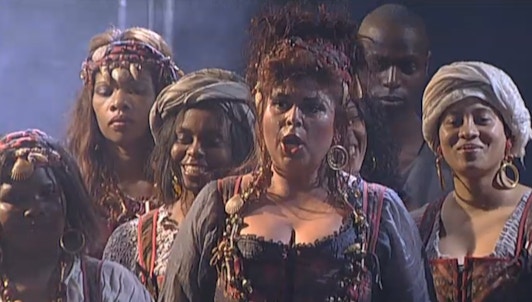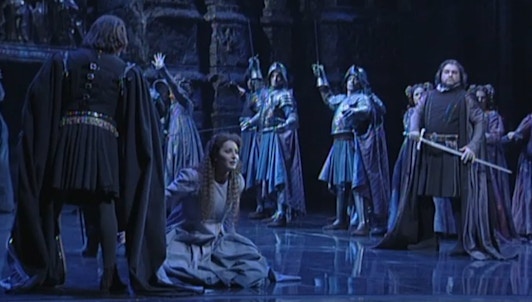Venice and Verdi: the inseparable. The city where such famous operas as Rigoletto or La Traviata premiered, and the great Italian composer, whose bicentenary is being celebrated this year.
Verdi was naturally a must at La Fenice's recent New Year's concert, led by world-famous conductor Sir John Eliot Gardiner. "I'm profoundly Verdian. I think the progression of masterpieces in his later years is quite astonishing. They're great because they're not only dramatically gripping and true, but melodically and harmonically there are so many interesting things going on, and Verdi, as an orchestrator, is still underrated," said Gardiner.
"He was a 'contadino', a peasant. He's not just living in the stratosphere, in some kind of very etiolated atmosphere, there's something very peasanty and earthy about Verdi, which I adore. That doesn't mean that he cannot express emotions that are incredibly tender and incredibly subtle – he does.
"I think he would be a great man to sit down with a good bottle of wine and some parmigiano and Parma ham and have a really good chin-wag – wonderful character, marvellous man, and so human," added the conductor, with a smile.
Tenor Saimir Pirgu says the world of opera can sometimes go to one's head and it's important to keep your feet on the ground: "Being a singer makes you fly high in the sky. You think everyone is looking at you. In fact, we're like clowns: we amuse the audience for two hours or just a minute, but at the end of the show, everyone goes home, you don't exist anymore, and you have to return to real life."
For soprano Desirée Rancatore, there is no place like Venice: "I love getting lost in Venice. Losing my way in this city is an incredible experience, each street corner has something magical and historic about it, and you forget who you are and where you are.
"Singing is my life. Producing sounds with my voice, embodying the unique characters found in opera makes my life wonderful. Each note I sing in front of the audience makes each sacrifice, each moment of solitude, worth the while," she said.
In this story, fragments of the following musical pieces by Giuseppe Verdi can be heard:
- Aida: Sinfonia
- I vespri siciliani: "Mercé, dilette amiche"
- Rigoletto: "Questa o quella per me pari sono"
- La Traviata: "Sempre libera degg'io" and "Libiam ne' lieti calici"

